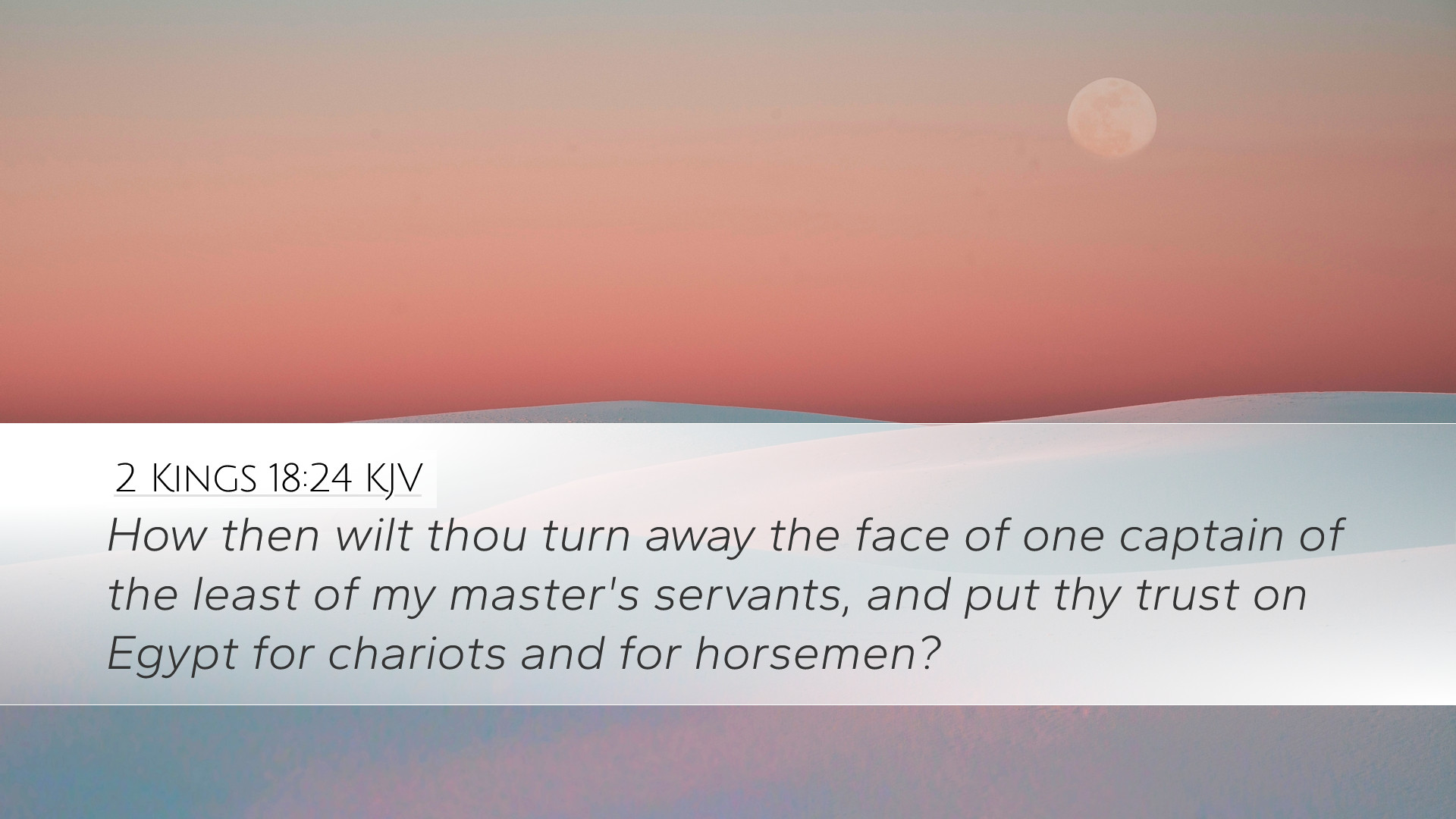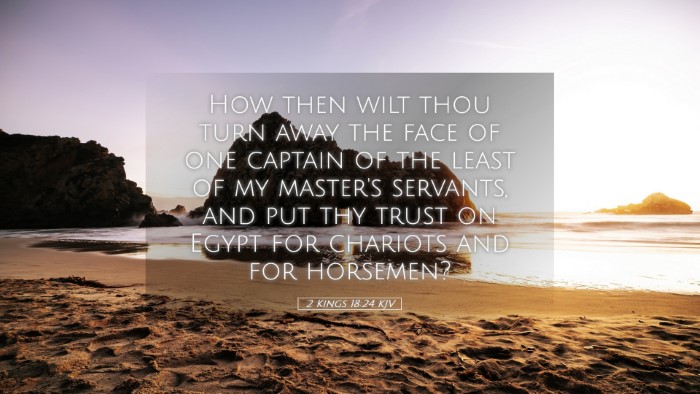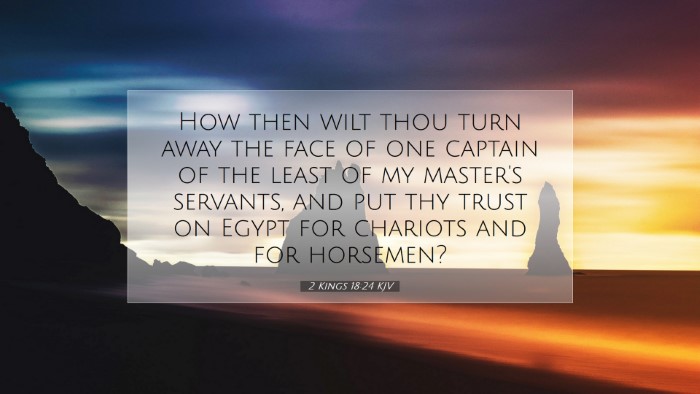Commentary on 2 Kings 18:24
2 Kings 18:24 states: "How then will you turn away the face of one captain of the least of my master's servants, and put your trust on Egypt for chariots and for horsemen?" This verse presents a critical moment during the reign of King Hezekiah of Judah, where the Assyrian leaders, particularly Rabshakeh, challenge the reliance of Judah on Egypt and its military strength.
Contextual Background
The context of this verse is significant, being set within the turbulent historical backdrop of the Assyrian conquest in the late 8th century BCE. Hezekiah, facing an existential threat from Sennacherib, king of Assyria, made attempts to fortify Judah's defenses and sought alliances to counteract this threat, including a notable appeal to Egypt.
Insights from Matthew Henry
Military Victory and Trust in God
Matthew Henry points out that the Assyrian emissary is deriding the idea that a mere Egyptian force could stand against the might of the Assyrians. He emphasizes that any external reliance, particularly on a nation notorious for its own weaknesses, is futile if not accompanied by true faith in God. Henry notes that faith is an indispensable element in the face of worldly powers.
The Pride of the Assyrians
Henry also highlights the arrogance of the Assyrians. The verse indicates that they are not only confident in their military prowess but also in their understanding of the geopolitical landscape. They mock Hezekiah’s attempt to seek help from Egypt, as they perceive it as an act of desperate folly. Henry asserts that this pride is a cautionary tale of human arrogance unable to recognize the limits of earthly power.
Insights from Albert Barnes
Analysis of the Trust in Egypt
Albert Barnes expounds upon the foolishness of relying solely on Egypt for military strength. He articulates that Egypt, though seemingly a powerful ally, is portrayed as an unreliable source of support. Barnes suggests that the reference to “one captain of the least of my master's servants” is an effort to show the futility of any earthly alliance when faced with a higher power; in context, that indicates God's might.
Implication of the Captains
The comparison to “the least” serves to underline the idea that even a minor figure among the Assyrians holds more authority than a host of Egyptian forces. Barnes explicates that this phrasing serves as a powerful reminder of the efficiency of divine power over human ability and how worldly alliances can often mislead and disappoint.
Insights from Adam Clarke
Spiritual Reflections
Adam Clarke considers this verse from both a spiritual and practical perspective. He suggests that the reliance on Egypt represented a broader theme of trust misplaced in human systems and structures rather than God. Clarke emphasizes the need for believers to reflect on where their trust lies during moments of crisis.
Egypt’s Reputation
Clarke provides insight into Egypt’s historical reputation as a strong military power. However, he cautions against romanticizing past alliances. He argues that even in scripture, Egypt emerges as a symbol of bondage and worldly reliance—suggesting that Hezekiah’s recourse to Egypt is illustrative of a deeper spiritual malaise that can affect believers when facing trials.
Theological Implications
This verse urges pastors and theologians to examine the nature of trust and reliance on God versus reliance on human institutions. The rebuke of Judah's dependency on Egypt invites serious reflection on the sources of strength and security that believers pursue in challenging times. This is starkly contrasted to the confidence that should be placed in God, who promises to sustain His people.
Points for Pastoral Application
- Encourage Faith Over Fear: Pastors should encourage their congregations to counter their fears with faith, reminding them that earthly solutions can often lead to disappointment.
- Teach about Reliability: The concept of true reliability can be discussed, emphasizing that human alliances may falter, but God's support is steadfast.
- Call to Dependence on God: In times of crisis, community encouragement should pivot towards a deeper dependence on God rather than on secular solutions.
Conclusion
In summary, 2 Kings 18:24 serves as a poignant reminder against the naivety of relying on human strength or alliances when facing monumental challenges. It calls both individuals and communities to reassess their sources of hope and security and encourages a return to confident trust in God, who holds ultimate power over nations and their rulers.


